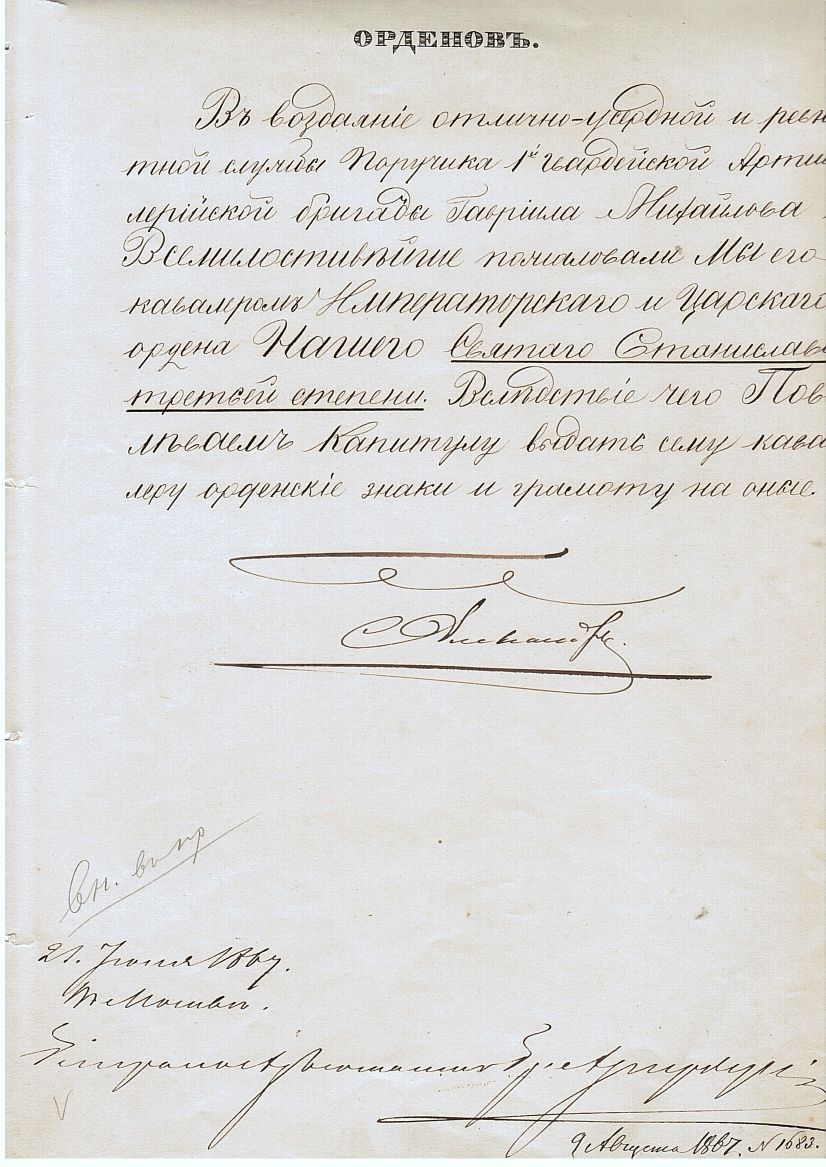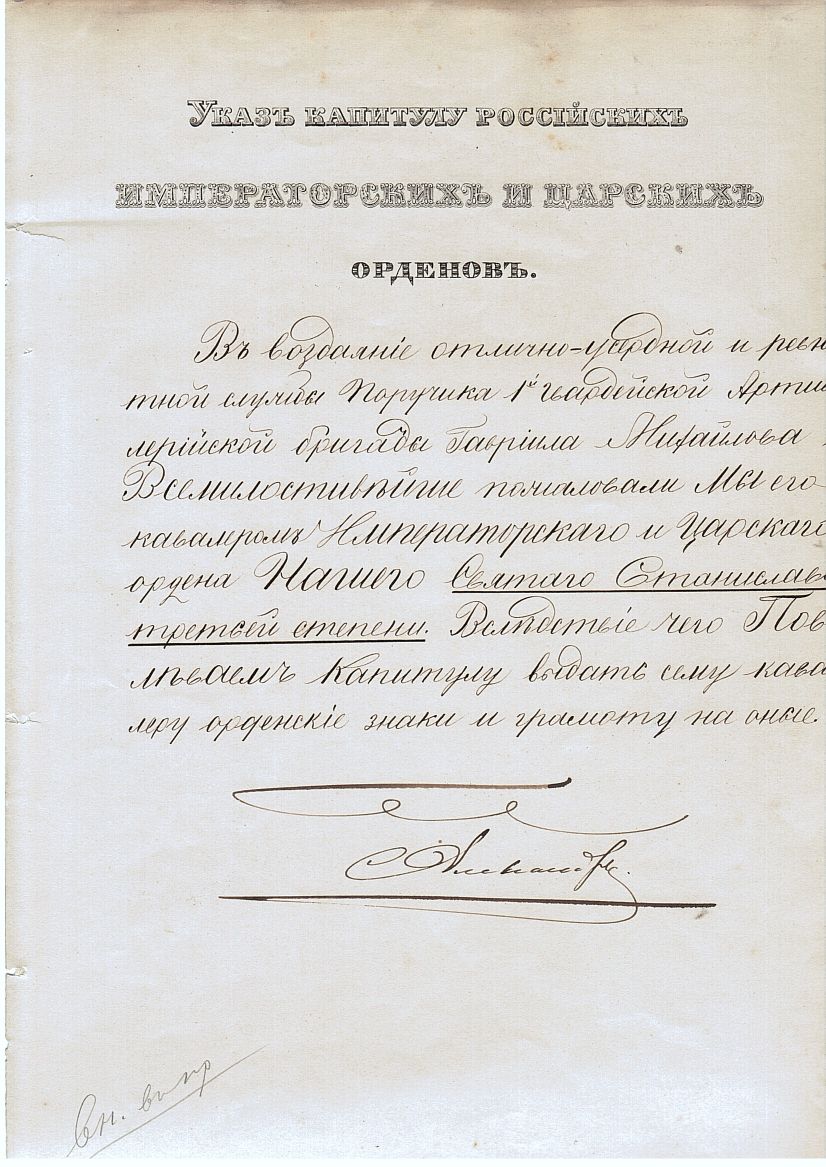
ALEXANDER II
('The Liberator', 1818-1881, Emperor of Russia from 1855)
Fine decree document, in Russian with translation, signed 'Aleksandr' addressed to the Chapter of the Russian Imperial and Royal Orders,
saying that "as reward for the outstanding zeal and devoted service of Lieutenant, 1st Artillery Guards Brigade, Gavriil Mikhailov", he has "been pleased to appoint him Knight of Our Imperial and Royal Order of St Stanislas, third class", and ordering "the Chapter to send the insignia ... and the document to the aforesaid", signed also in Russian "General-Adjutant Count Adlerberg" (Alexander Vladimirovich, 1818-1888), the Emperor's closest adviser and friend, 9th August1867, the document 1 side folio, Moscow, 21st June
(Transcription)
1 Ukaz Kapitulu Rossiiskikh
2 Imperatorskikh i Tsarskikh
3 Ordenov.
4 V vozdayanie otlichno-ycerdnoi i revnos-
5 tnoi sluzhbi Poruchika 1oi gardiiskou Artil-
6 leriiskoi brigada Gavriila Mikhailova
7 Vsemilostivyeishe pozhalovali My ego
8 Kavalerom Imperatorskago u Tsarskago
9 ordena Nashego Svyatago Stanislava
10 tretei stepeni. Vslyedstvie chego Pove-
11 lyevaem Kapitulu vidat semu kava-
12 leru ordenskie znaki i gramoty na onie.
13 [Signed] Aleksandr
14 21oe Iyunya 1867
15 V Moskvye
16 General Adyutant Gr[af] Adlerberg
17 9 Avgusta 1867
(Translation)
Ukase to the Chapter of Russian Imperial and Royal Orders. As reward for the outstanding zeal and devoted service of Lieutenant, 1st Artillery Guards Brigade, Gavriil Mikhailov: We have, Most Dear Sirs, been pleased to appoint him Knight of Our Imperial and Royal Order of St Stanislas, third class. In consequence of which We order the Chapter to send the insignia of a Knight of the Order and the document to the aforesaid.
[Signed] Alexander
21st June 1867
Moscow
[Signed] General Adjutant Count Adlerberg
9th August 1867
Alexander succeeded his father Nicholas I in 1855. He had been subjected to a rigorous military training by his father which had affected his health. He married Maria Alexandrovna, daughter of the Grand Duke of Hesse-Darmstadt, in 1841. He ended the Crimean War with the Treaty of Paris in 1856. A determined reformer the greatest achievement of his reign was the emancipation of the serfs in 1861 (hence his nickname), followed by the reform of the legal and administrative systems, widespread building of railways and schools and the establishment of elected assemblies in the provinces. He put down a Polish insurrection in 1863 with great severity. In 1864 Russia expanded to the South East, annexing Tashkent and the holy city of Samarkand, which was not given up without a fearful struggle. The walled city of Ura-Tyube and its citadel were only stormed two years later. Throughout his reign he maintained friendly relations with Prussia especially in the Franco-German was of 1870-71, and married his daughter to Alfred, Duke of Edinburgh, son of Queen Victoria. He extended the Russian empire in the Caucasus and central Asia, and took the field with his army in the victorious war against Turkey (1877-78) winning the liberation of Bulgaria. On the death of his wife he married his mistress Katharina Dolgorukova. Despite his liberal views, his government was severe in repressing peasant unrest and revolutionary movements, especially the Nihilists. After several assassination attempts he was mortally injured by a bomb thrown at him in St Petersburg.
The Adlerbergs came from a noble Swedish family. Alexander's father Vladimir Fyodorovich, (1790-1884), introduced postage stamps to Russia, and Alexander's brother Nikolai, (1815-1892), was Governor of Finland.
Item Date:
1867
Stock No:
38101


<< Back